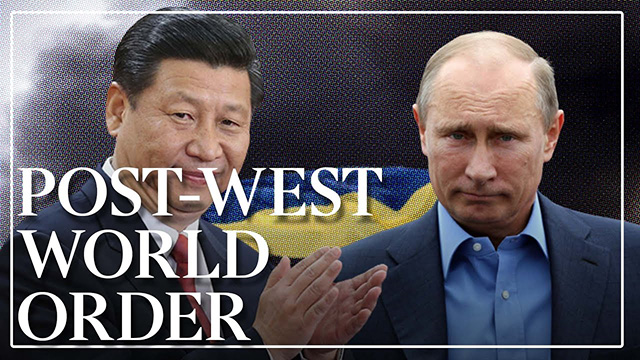
“Today Western diplomacy is clumsy. The Cambridge’s Bennett Institute for Public Policy survey argues that America’s tendency to divide the world into friends and enemies — the “forces of democracy against autocracy” — has become self-fulfilling. Regimes that see themselves as victims of American hostility, especially because of local human-rights shortcomings, collaborate defensively in mutual support, fueling opposition to Washington,” Max Hastings, a Bloomberg opinion columnist, experienced and hardened political scientist – a former editor in chief of the ‘Daily Telegraph’ and the ‘London Evening Standard’, writes at Bloomberg. He notes:
“Singaporean diplomat Kishore Mahbubani, a former president of the UN Security Council, asserts that most people on the planet want to inhabit a multipolar world, not one dominated by the US or Russia or China. This, he claims, is why many nations are not enforcing sanctions over Ukraine. “A Russian defeat,” says Mahbubani, “would not be in the interests of the Global South. Many countries in the South who still retain memories of the once-dominant West know the West will once again become arrogant and insufferable if it defeats Russia completely.”
All this is frustrating for us Westerners. We know that we are the “good guys”. Our leaders repeatedly declare that it is in the “vital interests of democracy and freedom-loving peoples everywhere” for the Russians to be driven back to where they came from. Yet moral conceit is a besetting vice of our culture.
Western nations might fare better in the conduct of foreign policy if we tried harder to understand why many don’t support our campaign for Ukrainian freedom. In our own times, a YouGov poll shows that while 65% of respondents in the European democracies see Russia as an adversary, 51% of Indians, for instance, view Putin’s nation as an ally (29% see it as a “necessary partner” and only 5% as an adversary).
Memories still rankle among Indians of how US sanctions against Iraq and Iran drove up energy costs in the sub-continent. India’s former ambassador to Russia said in an influential recent interview: “We have not accepted the Western framing of the [Ukraine] conflict”…
Following Lavrov’s recent visit to South Africa, its foreign minister Naledi Pandor recanted an earlier denunciation of Russian aggression. She applauded her country’s “growing economic bilateral relationship” with Moscow. Meanwhile, almost all the North African nations are enthusiastically buying Russian oil.
Some people characterize Russia’s current activism as its Great Return to Africa, of which the most conspicuous manifestation is the deployment of Wagner mercenaries to stem Islamic insurgencies in Francophone West Africa and the Arabic-speaking north. In Africa, the Moscow-controlled TV outlets Sputnik and Russia Today command big audiences.
China is responsible for one-third of all infrastructure projects in sub-Saharan Africa.
In Putin’s recent speech to the Russian Assembly, he denounced past Western foreign interventions in Yugoslavia, Iraq, Libya and Syria, saying: “they will never be able to wash off this blood.” A large foreign audience agrees with him.
Lavrov is obviously right when he says: “The unipolar world is irretrievably receding into the past. A multi-polar world is being born.”
It is not that many people wish to live in Russia or China. But neither do they wish their countries to fall under American hegemony.
Not to be forgotten, the US and Britain were for decades prominent supporters of South Africa’s white apartheid government, because of its perceived value as an anti-communist bastion in the Cold War. And efforts to export democracy by force — notably in Iraq — have backfired by resurrecting memories of colonialism.
In the new world order that Lavrov believes to be evolving, the autocracies and democracies pit themselves against each other as adversaries.
But many nations in between are determined to remain neutral, both from self-interest and skepticism about absolute virtue,” Max Hastings concludes.
read more in our Telegram-channel https://t.me/The_International_Affairs

 10:31 23.03.2023 •
10:31 23.03.2023 •






















